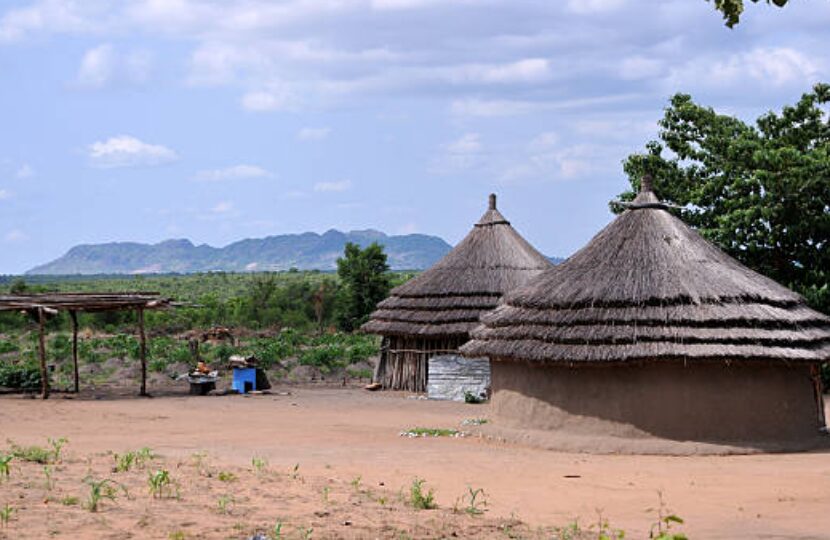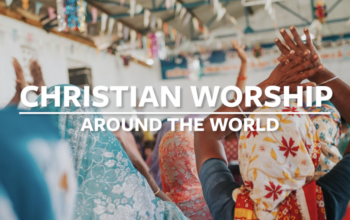A group advocating for Christians in Sudan reported they are trapped in a dangerous situation, as both warring factions accuse them of supporting the opposing side.
Christian Solidarity Worldwide (CSW) reports that rebel militants of the Rapid Support Forces (RSF) in Al Thora Mobe village, located in Gezira state southeast of Khartoum, are pressuring Christians to convert to Islam. The RSF militants also accuse individuals attempting to flee of supporting the Sudan Armed Forces (SAF).
The RSF has been controlling the village, a suburb of Wad Madani, since December.
CSW stated in a press release that fleeing is risky because of the RSF’s presence, as they have encircled the village and falsely accused anyone attempting to leave of having ties to the SAF, according to a local source.
The case of the SCOC members in Shendi shows the danger that those who stray from RSF-controlled areas run when they do.
SAF military intelligence detained 26 fugitives, most of whom were Christians in Shendi, River Nile State, over the course of the last week on suspicion of aiding the RSF without justification. Fourteen were released Oct. 12-13, but the remaining 12 remain in detention, CSW stated.
CSW has identified the Sudanese Church of Christ (SCOC) in Al Ezba, Khartoum North, as the primary affiliation of most of the detained men.
They were compelled to escape alongside their families because of the escalating conflict between the SAF and RSF in the area. “They were among 100 SCOC members who fled to Shendi in October.”
SAF military intelligence arrested the men at the SCOC building in Shendi—six on Oct. 6, 10 on October 10, and another ten on October 11.
“Military intelligence officers harassed, interrogated, and finally detained the men, accusing them of being affiliated with the RSF,” CSW reported.
“An eyewitness told CSW that all of the men were harassed and physically assaulted in front of their families.”
The men had traveled to Shendi with their families, including at least 25 women and 54 children, who now face a dire humanitarian situation and have been forced to stay in overcrowded conditions at the SCOC church building in Shendi, according to CSW.
According to the group, when the arrests took place, the officers segregated the individuals into categories of men, women, and children and held all males 18 years old or older.
“Those detained have not been allowed visits from family members or their lawyers and have not been formally charged with crimes.
The Almudada Unit of Military Intelligence, a notorious organization known for torturing detainees and using other forms of violence, is holding them.
Among the detained individuals, there is at least one Muslim who belongs to the Moro Nuban tribe in the South Kordofan state. The SCOC is a Nuba denomination that has endured both religious and ethnic discrimination.
“We are deeply concerned by the arrest and detention of these men, who simply sought refuge for themselves and their families, yet have been subjected to unjust detention, unwarranted assaults and interrogation,” CSW’s founder and President Mervyn Thomas said. “We welcome the release of 14 of the men but are concerned by the continuing detention of the others.
The circumstances of their arrest, the conditions of their detention, and the lack of access to their families and lawyers are egregious violations of their fundamental rights by the party to this conflict that occupies Sudan’s seat in international arenas, and which is therefore under a more outstanding obligation to protect and respect the human dignity of all civilians.”
CSW called for the immediate and unconditional release of these men.
Thomas also expressed deep concern about the worsening humanitarian conditions displaced individuals face, urging the authorities to ensure that those displaced for over 18 months receive the necessary support.
Fighting in Sudan between the paramilitary RSF and the SAF broke out in April 2023. The conflict between the RSF and the SAF, which had shared military rule in Sudan following an October 2021 coup, has terrorized civilians in Khartoum and elsewhere, displacing 10.2 million people, 7.9 million of them internally, according to the U.N. Refugee Agency.
The SAF’s Gen. Abdelfattah al-Burhan and his then-vice president, RSF leader Mohamed Hamdan Dagalo, were in power when civilian parties in March 2023 agreed on a framework to re-establish a democratic transition the next month. However, disagreements over military structure torpedoed the final approval.
Burhan sought to place the RSF—a paramilitary outfit with roots in the Janjaweed militias that had helped former strongman Omar al-Bashir put down rebels—under the regular army’s control within two years, while Dagolo would accept integration within ten years at the earliest. The conflict burst into military fighting on April 15, 2023.
Both military leaders have Islamist backgrounds while trying to portray themselves to the international community as pro-democracy advocates of religious freedom.
Ever since the conflict started, there has been a deliberate focus on targeting Christian sites.
Sudan’s ranking on Open Doors’ 2024 World Watch List increased from 10th to 8th, reflecting the ongoing challenges Christians face in the country, including attacks by non-state actors and a failure to enact religious freedom reforms at the local level.
Sudan had dropped out of the top 10 for the first time in six years when it first ranked No. 13 in the 2021 World Watch List.
Sudan saw improvements in religious freedom for two years following the fall of the Islamist dictatorship under Bashir in 2019, but the military coup on October 25, 2021, brought back the threat of state-sponsored persecution.
In the aftermath of Bashir’s ousting in April 2019, the transitional government, comprising civilians and the military, reversed several Sharia (Islamic law) provisions. It outlawed the labeling of any religious group “infidels” and thus abolished apostasy laws that made leaving Islam punishable by death.
Following the coup on October 25, 2021, Christians in Sudan were concerned about the potential resurgence of oppressive and stringent elements of Islamic law. In September 2019, Abdalla Hamdok led a transitional government as prime minister.
As a result, he was placed under house arrest for nearly a month before ultimately being released and reinstated via a precarious power-sharing agreement in November 2021.
The assignment given to Hamdock was to eliminate widespread corruption and an Islamist “deep state” that existed within Bashir’s regime. According to speculation, the same deep state was behind the coup that overthrew the interim administration on October 25, 2021.
The U.S. removed Sudan from the Countries of Particular Concern (CPC) list in 2019. “Systematic, ongoing, and egregious violations of religious freedom” are no longer engaged in or tolerated by the State Department. Sudan had previously held the designation of a Country of Particular Concern (CPC) from 1999 to 2018.
As of December 2020, Sudan is no longer on the Special Watch List of the State Department.
Out of Sudan’s over 43 million population, around 2 million people, constituting 4.5 percent, identify as Christians.




